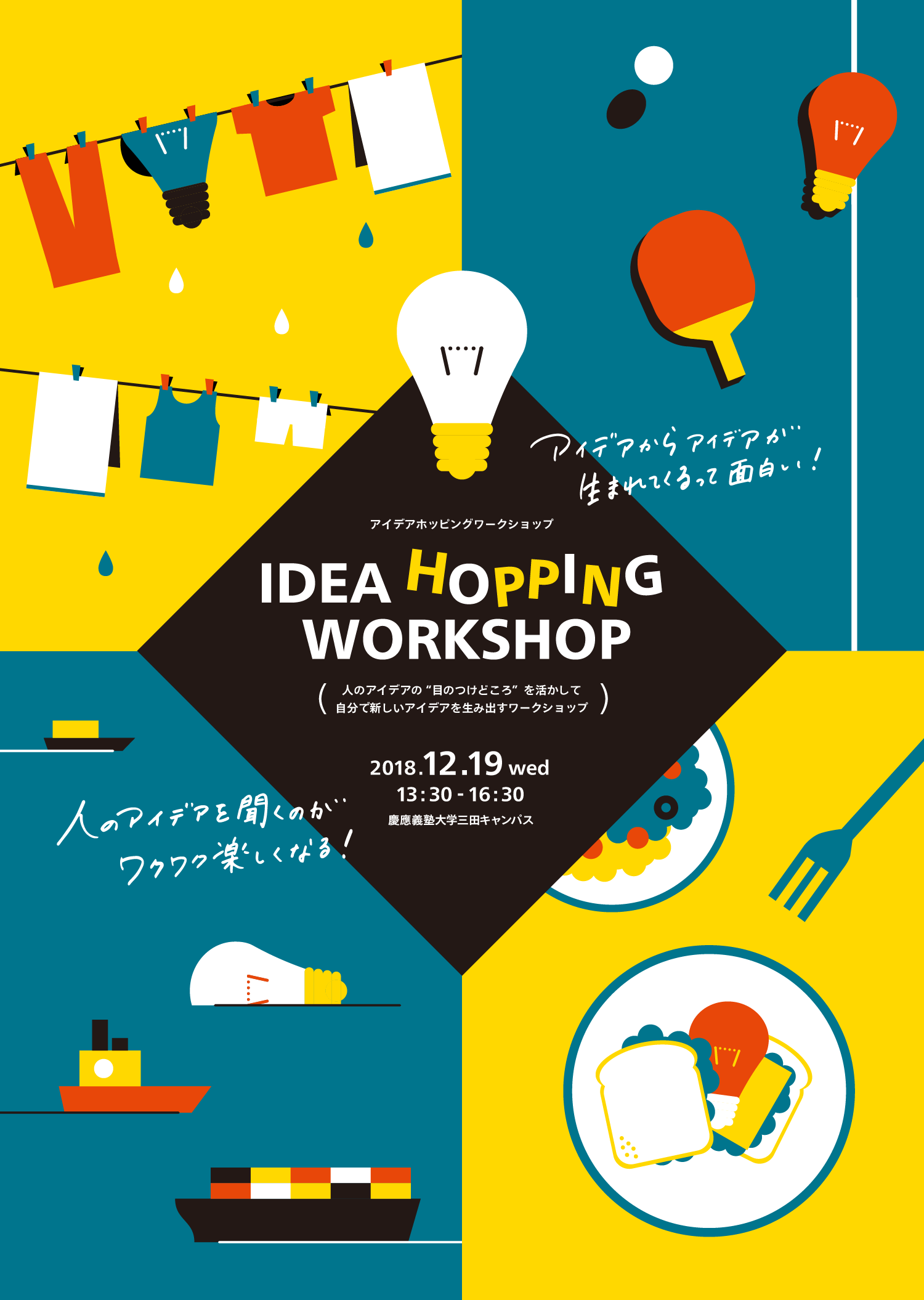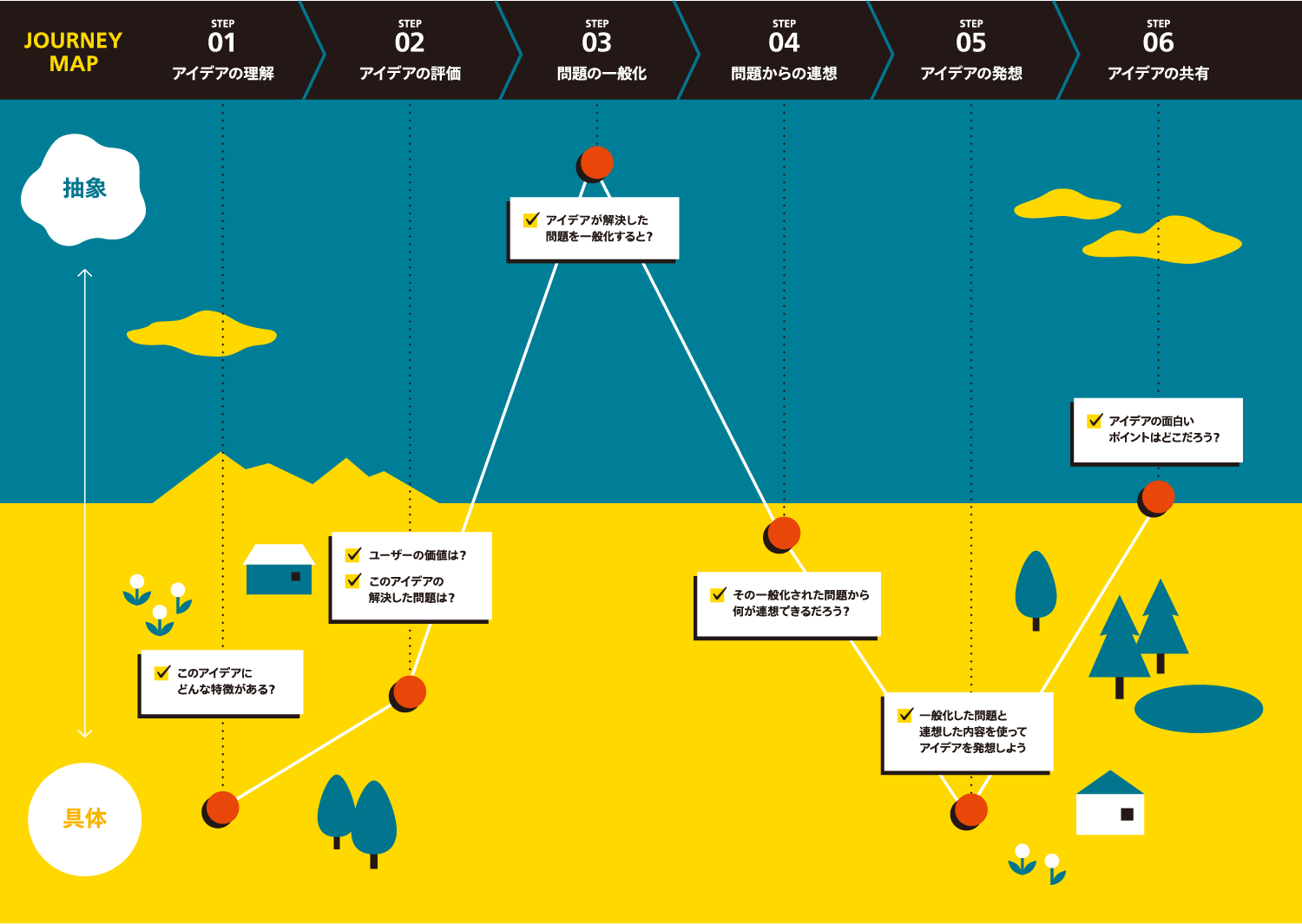Behavioral Design × Service Design
Boosting the creativity of co-creation workshops
In an increasingly uncertain and complex world, companies are placing importance on intellectual creativity, with design-based thinking being increasingly introduced. Conceptualization workshops are frequently being held as a part of such initiatives, however many of these lack the proper design needed to bring out the creative abilities of participants in these intellectual creative journeys.
This research project involved planning a creative thinking workshop utilizing applied behavioral science research. The ideal conceptualization journey was created through a combination of behavioral and service design for everything from attracting participants, introduction to the workshop, work process and tools, as well as providing a recap.
ACTANT handled visuals that served as touchpoints for intervening in the actions of the workshop participants, which consisted of college students. This was used to verify the effectiveness of the workshop. We created posters for the workshop, and also produced journey maps which displayed the changes in levels of abstract thinking when prompting the idea generation process.
- Category
- Workstyle
- Site/Year
- Tokyo / 2019
- Services
- Original method development / Organization development / Visual thinking / Co-creation workshop

Approach
Encouraging the Act of Producing
New Ideas from Existing Ones
Creative thinking workshops often encourage participants to “go along with the ideas of others” in hopes of producing ideas through co-creation, but do the participants actually put this into practice?
This project investigated the issues participants have with trying to come up with new ideas based on the ideas of others, and found that there was a tendency for participants to try to come up with their own original ideas, while they were less inclined to use the ideas of others when brainstorming. In order to do so, it is important to be able to first understand the tangible value of a person’s idea in terms of personal experience, then be able to think abstractly regarding how to develop that idea, and then once again make that tangible in accordance with the topic at hand. It was discovered that being able to switch modes of thinking in such a manner is quite difficult. Taking these issues into consideration, an ideal co-creation journey was charted in order to facilitate the activities of such creative thinking workshops.
Result
Creation of Touchpoints to Provide Visual Support
for the Ideal Co-creation Workshop
Utilizing the behavioral design method, we created an entire series of touchpoints in order to support the implementation of the workshop journey that was developed, including the workshop processes, posters, and journey maps.
On the visual side, the posters contained illustrations showing someone else’s ideas (represented by light bulbs) morphing into various things. We created tools to encourage a positive appreciation of using the ideas of others as an important resource for coming up with even better ideas.
The journey map consisted of visual representations of the various steps on the horizontal axis, while the vertical axis indicated changes in thinking level (tangible towards the bottom and abstract towards the top.) By including this map, it became easy to see what type of thinking should be used to complete the goals for each step.

Point
- Designing creative thinking workshops that utilize behavioral science research on creativity
- Visual support illustrating the changing levels of abstract thinking during brainstorming
- Using visualizations and messages to present the meaning of the reframed workshops